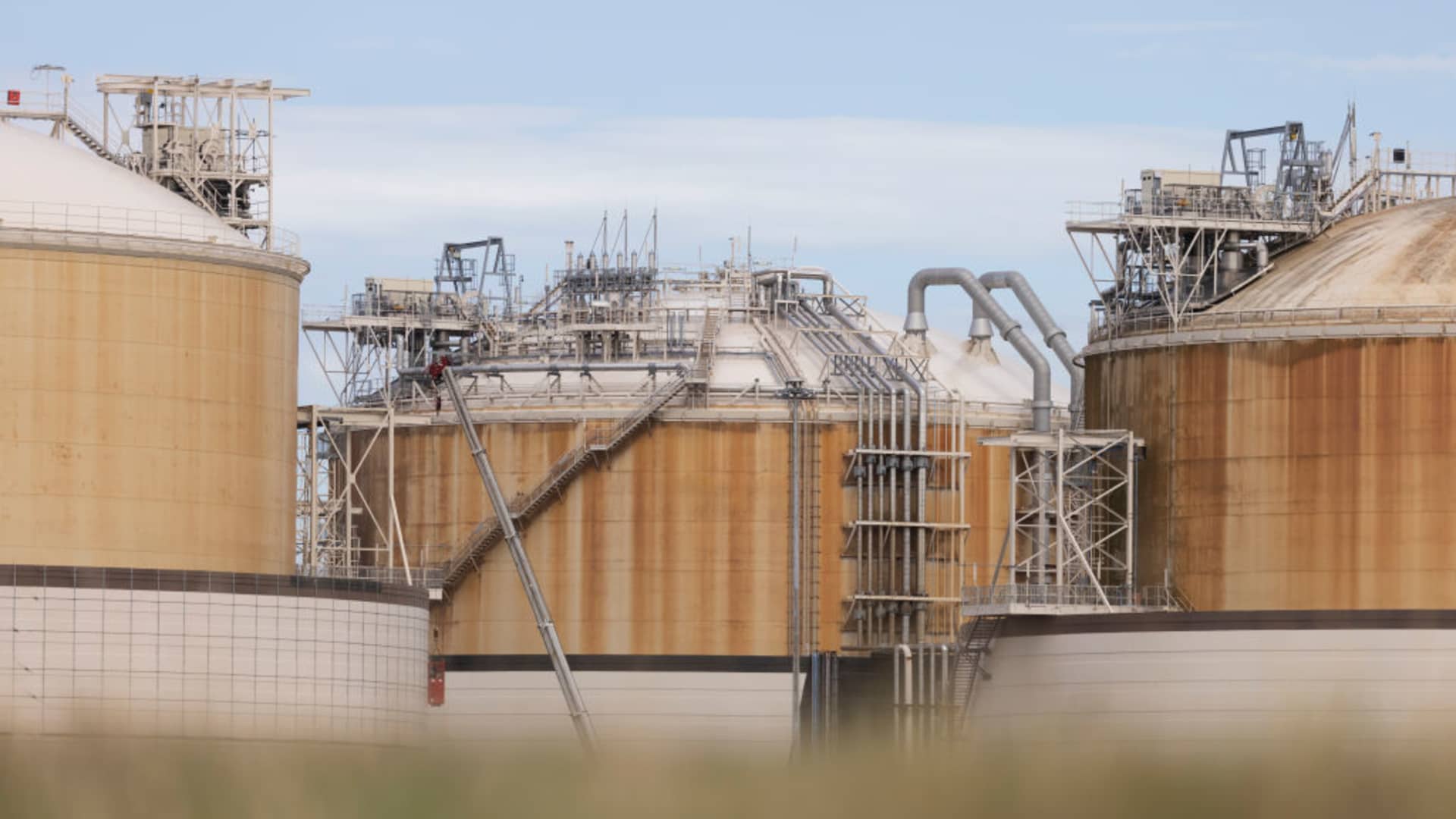European natural gas prices are falling as the market focuses on labor talks at Woodside.
European gas storage is in a strong position with storage levels hitting a record high of 92%, surpassing the European Commission's target, while Australian strike action poses an upside risk for the market, potentially driving prices higher than expected.
European and U.S. natural gas prices rose due to concerns over supply from Australia and Norway, with maintenance at Norwegian gas fields and fears of a strike at Chevron's LNG facilities driving uncertainty.
Workers at Chevron's liquefied natural gas facilities in Australia are planning to strike, which could result in a loss of around 7% of global supply and potential price increases.
Strikes at Australian natural gas facilities could lead to a global shortage of gas supply and higher European gas prices, as the market is currently very tight with little flexibility, according to energy analysts. The strikes are scheduled to begin on Thursday unless an agreement is reached between Chevron and the unions representing workers at the Gorgon and Wheatstone projects. However, analysts believe that prices are unlikely to reach the record peaks seen in September 2021. The gas market also remains sensitive to other factors, such as disruptions caused by winter storms or a cut in Russian gas supply. There is also uncertainty surrounding the future of gas transit through Ukraine, which could further impact European gas prices.
Workers at Chevron's Gorgon and Wheatstone LNG projects postpone their strike to Friday, signaling positive ongoing discussions and causing European gas benchmarks to decrease and EU gas storage to exceed 93%.
Workers at Chevron's liquefied natural gas (LNG) projects in Australia have gone on strike, potentially disrupting over 5% of global supply and causing a spike in European gas prices, as talks broke down over wages and conditions.
About 146,000 U.S. auto workers are set to go on strike this week, demanding big pay raises and the restoration of previous concessions made during financial troubles, which could cause significant disruptions for auto production in the United States.
European gas markets are expected to experience more volatility and higher prices as preparations for the winter heating season are underway, with disruptions caused by strikes at major liquefied natural gas (LNG) facilities in Australia leading to increased competition for LNG from other suppliers in Asia and Europe.
A potential strike by the United Auto Workers could have wide-ranging economic impacts, including higher car prices and job losses at suppliers, with a prolonged strike even potentially pushing the economy toward a recession.
Gas prices have been rising in the US due to drilling restrictions imposed by OPEC, with California having the highest prices; automotive workers in the US, represented by the UAW union, have initiated a large-scale strike against General Motors, Ford, and Stellantis; President Biden believes that auto companies haven't fairly shared their record profits with workers; Senator Sanders supports the strike as a fight for better conditions for the working class; the Federal Reserve will meet to discuss interest rate changes, with the current rate standing at 5.33 percent.
The United Auto Workers' strike against Big Three automakers may not have an immediate impact on car shoppers, but there is a risk of parts shortages and longer repair times, with potential price increases in the long run.
